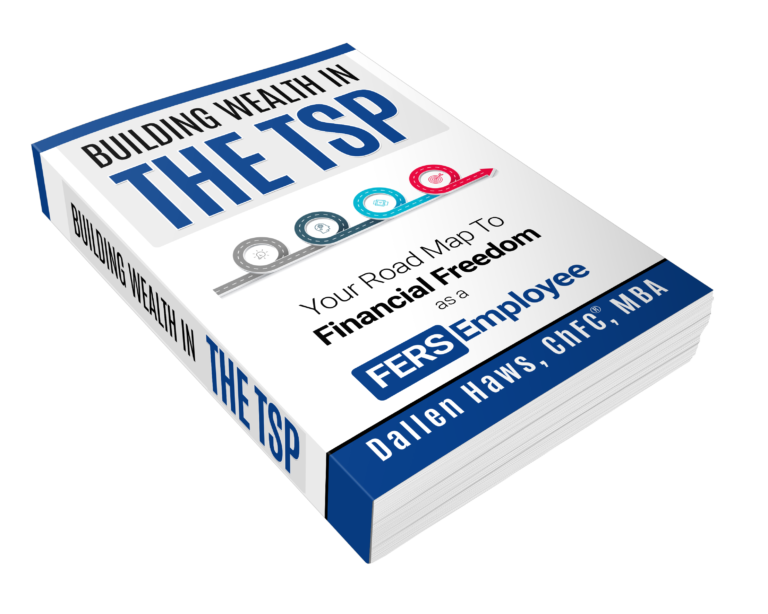What is going to be your biggest expense in retirement?
Well, if your mortgage is paid off then it is probably going to be keeping Uncle Sam happy.
Aka. Taxes.
And while you will almost certainly pay taxes on your FERS pension and Social Security, the biggest tax mistakes I have seen have happened with the TSP (thrift savings plan).
Consequently, one of the best ways to keep your taxes down in retirement is by understanding how your TSP is taxed and some of the common pitfalls that people fall into.
What Taxes Apply To Your TSP?
There are many different types of tax here in the United States. Some of the common ones are income tax, sales tax, and FICA tax. You pay sales taxes when you buy something and you pay FICA (social security and medicare tax) from every one of your paychecks.
Income taxes however, are due on most sources of income including W2 income and most business income.
And whenever you take money out of your traditional TSP, you will owe federal income taxes (and maybe state income tax depending on where you live). You will not have to pay any FICA taxes on your TSP withdrawals.
Unlike investment accounts, TSP withdrawals don’t get the advantage of being taxed at the lower long-term capital gains rates. TSP withdrawals are always taxed at your ordinary income tax rate.
However, whenever you take money out of the Roth TSP then that money comes out completely tax free.
10% Penalty
One of the most well known rules when it comes to the TSP is the rule of 59 and ½. Basically, for many retirement accounts you will have to pay a 10% penalty if you access them before age 59 and ½.
The simplest rule to get around the 10% penalty before 59 and 1/2 is if you retire in the year you turn age 55 or later. For example, if you turn 55 in December of this year and you retire this year as well then you’d be able to access your TSP without the 10% penalty.
But now let’s say you decide to retire one year earlier during the year you turn 54. In this case, you will be subject to the 10% penalty for any TSP distributions even after you turn 55. Basically, if you leave service before the year you turn 55 then you will have to wait until age 59 and ½ to avoid the 10% penalty (unless you qualify for a different exception).
Note: Your traditional TSP withdrawals will still be subject to taxes even if you avoid the 10% penalty.
Special Provisions
But yet again, the rules are a little different for those federal employees who are under special provisions like air traffic controllers and firefighters. For these groups they would be able to access their TSP without penalty if they leave service in the year they turn 50 or later.
Not All At Once
One of the most important things to remember in retirement is that you probably don’t want to take a big chunk of money out of your traditional TSP at a time. Because if you do, your withdrawal will be added to taxable income which might just pop you up to a higher tax bracket.
Generally speaking, it makes a lot more sense to spread out withdrawals over many years to keep taxable income as stable as possible.
RMD 50% Penalty
One common pitfall in retirement happens with RMD’s or required minimum distributions.
RMDs start at age 72 and are required for both the traditional and Roth TSP.
Basically, RMDs require you to take out at least a certain portion of your TSP every year whether you need the money or not. For some people, this will push them into a higher tax bracket.
However, an even more severe mistake is made when someone neglects to (or just forgets to) take money out of their TSP for their RMD in a tax year. When this happens, the government inflicts a penalty of 50% of whatever amount they were supposed to remove from their account but didn’t.
For example, if they were supposed to take out $10,000 from their TSP for an RMD then a $5,000 penalty would be due if you forget about the RMD. As you can see, the government takes RMD’s very seriously.
Conclusion
Now that you know some of the major pitfalls to know and plan for, you will be better prepared to keep your taxes down in retirement. However, you will want to stay up to date with these rules as they do change over time.


